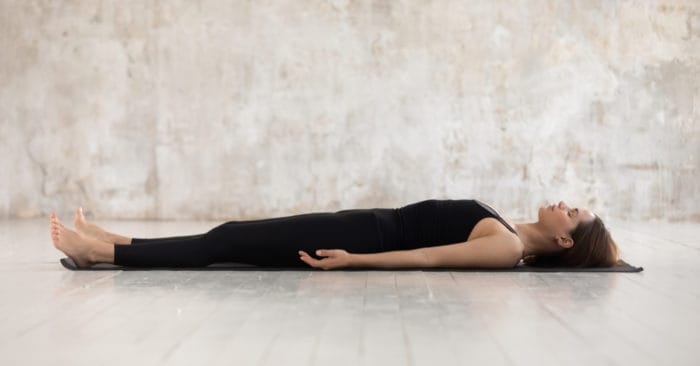Deep Relaxation Techniques Vs. Mindfulness: Choosing Your Approach

Are you feeling overwhelmed and in need of some relaxation?
It’s time to explore the world of deep relaxation techniques and mindfulness.
In this article, we will guide you through the benefits of both practices and help you make an informed decision about which approach is best for you.
So, whether you want to unwind with deep relaxation or cultivate mindfulness in your daily life, we’ve got you covered.
Get ready to discover the perfect path to inner peace.
Key Takeaways
- Deep relaxation techniques and mindfulness both offer benefits for promoting calmness, reducing stress, and improving overall well-being.
- Deep relaxation techniques involve physical and mental relaxation through practices like progressive muscle relaxation and guided imagery.
- Mindfulness, on the other hand, cultivates awareness and focus on the present moment through practices like meditation and breath awareness.
- When choosing between deep relaxation techniques and mindfulness, it is important to consider personal comfort, familiarity, and goals in order to select the approach that aligns best with individual preferences and needs.
Understanding Deep Relaxation Techniques
Deep relaxation techniques, such as progressive muscle relaxation and guided imagery, can help reduce stress and promote a sense of calmness. When exploring different methods of deep relaxation, it’s important to find one that suits your needs and preferences.
Progressive muscle relaxation involves tensing and releasing each muscle group in your body, helping you become more aware of physical tension and letting it go. Guided imagery, on the other hand, uses visualization to create a calm and peaceful mental environment. Both methods have practical applications in managing stress and anxiety.
Progressive muscle relaxation can be useful for those who carry tension in their bodies, while guided imagery can be beneficial for those who find solace in vivid visualization. Whichever method you choose, incorporating deep relaxation techniques into your routine can bring about a sense of relaxation and tranquility.
Exploring the Benefits of Mindfulness
Take a moment to consider the advantages of practicing mindfulness. Not only does it offer numerous benefits for your mental and physical well-being, but it also serves as an effective tool for stress relief. By incorporating mindfulness into your daily routine, you can experience a sense of calm and clarity that can greatly improve your overall quality of life.
| Benefits of Meditation | Mindfulness for Stress Relief |
|---|---|
| Reduces anxiety | Promotes relaxation |
| Improves focus and attention | Lowers stress levels |
| Enhances self-awareness | Boosts overall well-being |
| Increases resilience | Improves sleep quality |
Meditation, a key component of mindfulness practice, has been shown to have numerous positive effects on mental health. It helps reduce anxiety, improve focus, and enhance self-awareness. Additionally, mindfulness is a powerful tool for stress relief, as it promotes relaxation, lowers stress levels, and boosts overall well-being. Incorporating mindfulness into your daily routine can greatly improve your ability to manage stress and enhance your overall quality of life.
Comparing the Practice of Deep Relaxation Techniques and Mindfulness
When comparing the practice of relaxation and mindfulness, you can find different approaches that suit your needs and preferences. Both deep relaxation techniques and meditation can be effective in reducing stress and promoting overall well-being.
Here are some key points to consider:
- Deep relaxation techniques focus on achieving a state of profound physical and mental relaxation. This can be done through practices such as progressive muscle relaxation, guided imagery, and deep breathing exercises.
- Meditation, on the other hand, involves cultivating a state of mindfulness by focusing your attention on the present moment. This can be achieved through techniques such as breath awareness, body scan, and loving-kindness meditation.
- Mindfulness, whether practiced through deep relaxation techniques or meditation, has been shown to be beneficial for stress reduction, improving mental clarity, and promoting overall emotional well-being.
Ultimately, the choice between deep relaxation techniques and mindfulness depends on your personal preference and what resonates with you the most.
Factors to Consider When Choosing Your Approach
One important factor to consider when deciding which approach to choose is your personal level of comfort and familiarity with the practice.
Deep relaxation techniques and mindfulness both offer unique benefits, but finding the right balance for yourself is essential.
If you prefer a more active approach, mindfulness might be the better choice. It requires active participation and focus on the present moment.
On the other hand, if you find it difficult to quiet your mind and prefer a more passive approach, deep relaxation techniques may be more suitable for you. These techniques involve consciously relaxing your body and mind, allowing a deep sense of relaxation to take over.
Ultimately, the key is to reflect on your preferences and needs, and choose the approach that aligns best with your personal style and goals.
Tips for Incorporating Deep Relaxation Techniques and Mindfulness Into Your Life
If you’re looking to incorporate deep relaxation techniques and mindfulness into your life, it’s important to find a balance that works for you. Here are some tips to help you seamlessly integrate these practices into your daily routine:
- Start small: Begin by dedicating just a few minutes each day to deep relaxation and mindfulness exercises. This will make it easier to stick with the routine and gradually increase the duration over time.
- Create a sacred space: Designate a quiet and peaceful area in your home where you can practice deep relaxation and mindfulness. Fill it with calming elements like soft lighting, soothing scents, and comfortable cushions.
- Be consistent: Make deep relaxation and mindfulness a regular part of your daily routine. Set aside specific times each day to engage in these practices, and stick to your schedule as much as possible.
Frequently Asked Questions
How Do Deep Relaxation Techniques and Mindfulness Differ in Terms of Their Effectiveness for Managing Stress and Anxiety?
When it comes to managing stress and anxiety, deep relaxation techniques and mindfulness have different effectiveness. Deep relaxation techniques focus on calming the body, while mindfulness focuses on calming the mind.
Are There Any Potential Drawbacks or Risks Associated With Practicing Deep Relaxation Techniques or Mindfulness?
There can be potential risks with both deep relaxation techniques and mindfulness. To address these risks, it’s important to consult a professional, listen to your body, and start slowly with any new practice.
Can Deep Relaxation Techniques and Mindfulness Be Used Together, or Should They Be Practiced Separately?
You can integrate deep relaxation and mindfulness into your daily life. They can be used together to promote better sleep and overall well-being. Experiment and find what works best for you.
Are There Any Specific Deep Relaxation Techniques or Mindfulness Exercises That Are Recommended for Beginners?
For beginners, there are specific deep relaxation techniques like progressive muscle relaxation and guided imagery. Mindfulness exercises, such as focused breathing and body scan, can also help you cultivate present moment awareness.
How Long Does It Typically Take to Notice the Benefits of Deep Relaxation Techniques or Mindfulness in Terms of Improved Mental Well-Being?
It typically takes some time to notice the benefits of deep relaxation techniques or mindfulness in terms of improved mental well-being. But both approaches can be effective for managing stress and anxiety.









